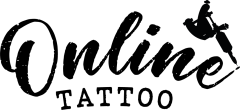
Wales Proposes Stricter Regulations for Tattoos and Piercings
27 January - 2023by Vincent Moleveld
Wales is proposing stricter regulations for tattoos and piercings to guarantee public safety and prevent the spread of blood-borne infections. These regulations include mandatory training for tattoo artists and piercers, as well as regular inspections of studios to ensure that they are maintaining safe and hygienic practices.
Currently, there is no requirement for tattoo artists and piercers to have any specific training or qualifications. This means that anyone can open a studio and start tattooing or piercing, regardless of their experience or knowledge of safe practices. The new regulations would require all tattoo artists and piercers to complete a training course that covers topics such as infection control, blood-borne pathogens, and sterilization techniques.
All studios would also be required to be inspected regularly by local authorities to check for compliance with the regulations, as well as for overall cleanliness and safety. Any studios found in violation of the regulations would face penalties, including fines and possible closure.
The regulations also cover the use of single-use needles and other equipment. The use of single-use needles would be mandatory for all tattooing and piercing procedures, and all studios would be required to have a sterilization machine to properly sterilize reusable equipment. Additionally, all studios would be required to keep records of their sterilization procedures and make them available for inspection.
The proposal has received support from both tattoo artists and public health officials. Tattoo artists argue that stricter regulations would help to improve the reputation of the industry, as well as ensure that customers are receiving safe and hygienic services. Public health officials, on the other hand, argue that the regulations are necessary to protect the public from the spread of blood-borne infections such as HIV and Hepatitis B and C.
The proposed regulations also cover the practice of earlobe stretching, which is a form of body modification that involves gradually increasing the size of the earlobe hole. This practice can lead to complications such as infection, tearing, and scarring. Under the proposed regulations, piercers who offer this service would be required to have specific training and qualifications in earlobe stretching.
While the proposed regulations may increase the cost of getting a tattoo or piercing, they would also help to ensure that customers are receiving safe and hygienic services. The regulations would also help to improve the reputation of the industry and ensure that tattoo artists and piercers are held to the same standards as other professionals in the healthcare field.
In conclusion, the proposed regulations for tattoos and piercings in Wales are an important step towards ensuring public safety and preventing the spread of blood-borne infections. By mandating training for tattoo artists and piercers, regular inspections of studios, and the use of single-use needles and other equipment, the regulations would help to ensure that customers are receiving safe and hygienic services, while also improving the reputation of the industry.
Editor's choice
Action line warns: ‘Be very careful with laser tattoo removal’
by Vincent Moleveld
Want to get rid of a tattoo? Not a problem, you may think, there is always the option to have it removed by laser treatment. But be very careful, experts warn. Tattooists, hair- and nail salons are bombarded with offers by manufacturers of cheap...
Read moreExploring the Bold World of Abstract Tattoos
by Vincent Moleveld
Abstract tattoos are a modern, eclectic form of body art that is becoming increasingly popular among tattoo enthusiasts. Unlike traditional tattoos that feature defined lines and recognizable imagery, abstract tattoos are characterized by their...
Read more5 Reasons Why Tattoo Artists Should Be on Online Platforms
by Vincent Moleveld
In today’s digital world, it’s essential for tattoo artists to have a strong online presence. With clients increasingly turning to the internet for recommendations, inspiration, and booking, having a well-established presence on platforms like...
Read more

.jpeg?quality=85&type=webp&resolution=421x263)

